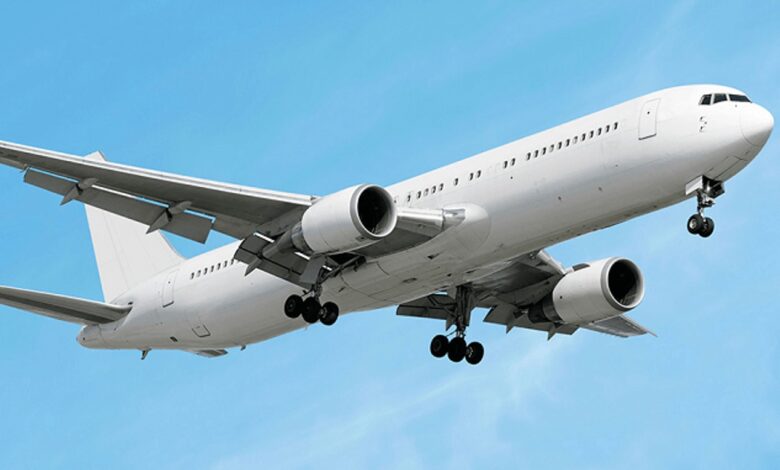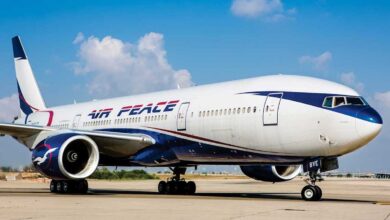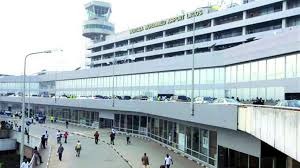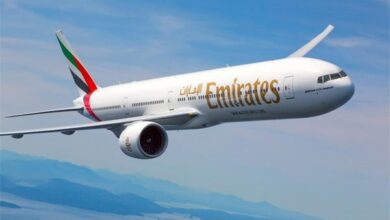
Minister of Aviation and Aerospace Development, Mr. Festus Keyamo, has aroused mixed feelings among stakeholders in the air transport sector with his determination to introduce the Fly Nigeria Act to the National Assembly.
Questions surrounding the minister’s commitment to ensuring that Indigenous carriers receive absolute patronage from public officials range from local airlines’ competitiveness to the policy’s workability.
Designed to improve air travel, the Fly Nigeria Act, if approved by the Federal Executive Council, FEC, and passed into law by the country’s apex legislative body, would mandate government officials to prioritize domestic airlines for official foreign trips.
It is for this reason that Keyamo, at the 2025 ministerial press briefing in Abuja, revealed that he is in the process of proposing the bill to the country’s highest legislative organ.
“Once the Fly Nigeria Act is finalized, it would be presented to the FEC, Federal Executive Council, for approval. After that, we will take it to the National Assembly to ensure that local airlines are given priority on international routes before international airlines,” the minister told newsmen last Thursday.
Past and present efforts
Although the idea of a Fly Nigeria Act is not new in the country’s aviation industry, the latest drive by the minister to ensure a favorable outcome has been reviewed by analysts, with suggestions made.
Saturday Vanguard recalls that a formal attempt to legislate the act began some 16 years ago when former Minister of Aviation, Babatunde Omotoba, 2009, introduced the policy to the FEC through a memo.
The memo, titled: ‘Fly Nigeria Policy: Patronage of Indigenous Airlines by Federal Public Officers,’ sought the council’s “approval for the introduction of a policy (Fly Nigeria) making it compulsory for all Federal public officers to patronize Nigerian airline operators when undertaking official trips overseas on routes operated by the indigenous Nigerian airlines.”
While Omotoba did not succeed in overseeing its ratification, a former President of the Nigerian Bar Association, NBA, Dr Olisa Agbakoba, and members of the Aviation Safety Round Table, ASRTI, among others, have persisted in advocating for the act.
Early last year, Agbakoba, during a media chat, urged the Federal Government to enact it, and assured that a Fly Nigeria Act would strengthen air transport in Nigeria.
“Proposals such as the Fly Nigeria Bill, the Aviation Corporate Governance Code, and the domestication of international conventions have been suggested to address these challenges,” he said.
The legal practitioner further asserted that Fly Nigeria, copied from the Fly America Act, “aims to apply public funds for air travel exclusively to national carriers, generating passenger traffic and supporting their international growth.”
What analysts say
With the current minister of aviation disclosing that he is in the process of making another push for the act, many have shared their thoughts.
Among them is the Chief Executive Officer of Centurion Aviation Security and Safety Consult, Group Captain John Ojikutu, retd.
Ojikutu, in a chat with Saturday Vanguard, asked: “Do we have the airlines that will compete with all these foreign airlines if the act is implemented?”
Abacha era
The analyst recalled that during the administration of former military Head of State, late General Sani Abacha, many government officials traveled to Ghana to satisfy their craving for British Airways despite Abacha banning the airline from flying into Nigeria.
He said: “I do not know whether people remember that when Abacha stopped British Airways, BA, from coming into Nigeria, many Nigerians, including government officials, traveled to Accra to fly the airline out of the country.”
Ojikutu argued that the Fly Nigeria Act would not help domestic airlines, stating that the best move would be for the minister to restrict foreign airlines to a single entry point.
“That is the only way domestic airlines, including Air Peace, can benefit. Foreign airlines can be allowed to go to either Abuja or Lagos 100 times a day. However, to go to Abuja and fly into Lagos should not be allowed because that is the only way you are going to create a market for your airline within the country,” he said.
Mexican model
Ojikutu suggested that Nigeria could learn from Mexico, which implements similar restrictions.
“We are just wasting time on something that won’t materialise. Fly Nigeria on which airline? If you are doing that with a national carrier, then it is different. Again, that is why I do not agree with the national carrier because I saw how Nigerian Airways was wrecked by government officials.
“Officials would collect money government in dollars for first class, business class tickets. Even when issued economic class tickets, they would fly first class or business class and deny the airline funds from passengers who had money to pay. There are about 30 foreign airlines flying into this country, is it only Air Peace that would compete with them? How many passengers will it pick? It will not work,” Ojikutu added.
Workability
Like him, aviation journalist, Wole Shadare, wondered if Nigeria had the airlines to enable it work.
He said: “it looks good on paper. It looks fantastic. It is good that the minister wants to support Nigerian airlines, but where are the airlines? Do we have an aviation industry that is as developed as the United States’ from whom we want to copy? A lot of things will be considered for it to be passed.”
Benefits
Unlike Shadare and Ojikutu, the Managing Director of Aero Contractors, Captain Ado Sanusi, told Saturday Vanguard that it would be a clever move if the minister is able to oversee its enactment.
Sanusi explained that the act would be beneficial to both international travellers and domestic airlines because it would mean more business and better service.
According to him, “it means that for any official of government or contractor doing business with the Nigerian government and is being paid by the Nigerian government, there is a requirement for him to fly the country’s flag carrier when going on foreign trips. I think it is a national duty to do it because every country would like to protect its business and see it grow.”
He also said efforts geared towards its implementation commenced long ago, adding that he had thrown his weight behind the bill from his days in Arik Air.
“We have been fighting for it since I was in Arik. We want to ensure that public servants flying out of the country use either the flag carriers or the national carrier. It will definitely push traffic to these carriers and boost their revenue. It is a very good thing to have and grow the industry,” he told Saturday Vanguard.
Support our own
Sanusi insisted that it is the duty of Nigerians to ensure the success of domestic businesses, saying it is a national responsibility.
“As a country, we just have to support our own. For any industry, be it banking, telecommunication, oil and gas, you just have to support your country. It is not possible to support other countries over ours and expect it to grow. All these beautiful carriers that we see outside the country coming in, all these beautiful things that we see in developed countries were supported by citizens. It is not aliens that built industries for foreigners, they did it themselves, and we can learn from them,” he said.
Hope
For the General Secretary of the Aviation Safety Roundtable Initiative, Mr Olumide Ohunayo, he expressed hope that the FEC would not repeat what it did to Omotoba, urging them to use the initiative in reserving a market for Nigerian carriers.
“We can now see the partnerships that Nigerian carriers are getting. This is because we now have a minister that is pushing the Nigerian product. I hope that the minister is able to break the ice that Omotoba could not break,” the analysts said.
Ohunayo, however, added that whatever comes out of the proposal should not deter local airlines, saying they should continue to increase collaboration with international carriers.
“Whichever way, Nigerian airlines should not lose focus, they should continue to deepen partnership. If implemented, Fly Nigeria will work better if those who fly Nigerian carriers are put in other flights beyond that point where they are operating to. With that, there will be options and varieties for Nigerians when they are flying a domestic carrier,” he said.






